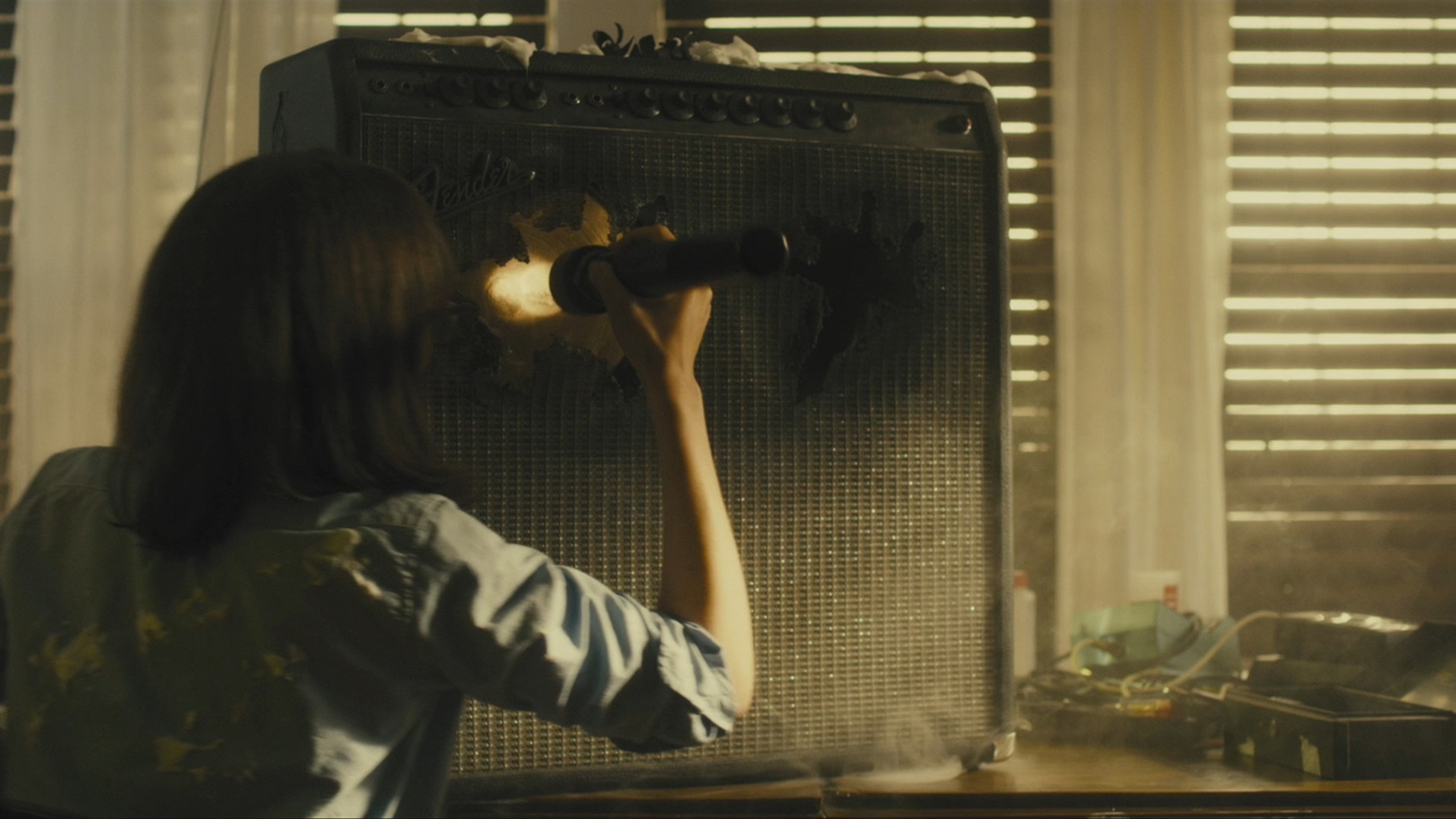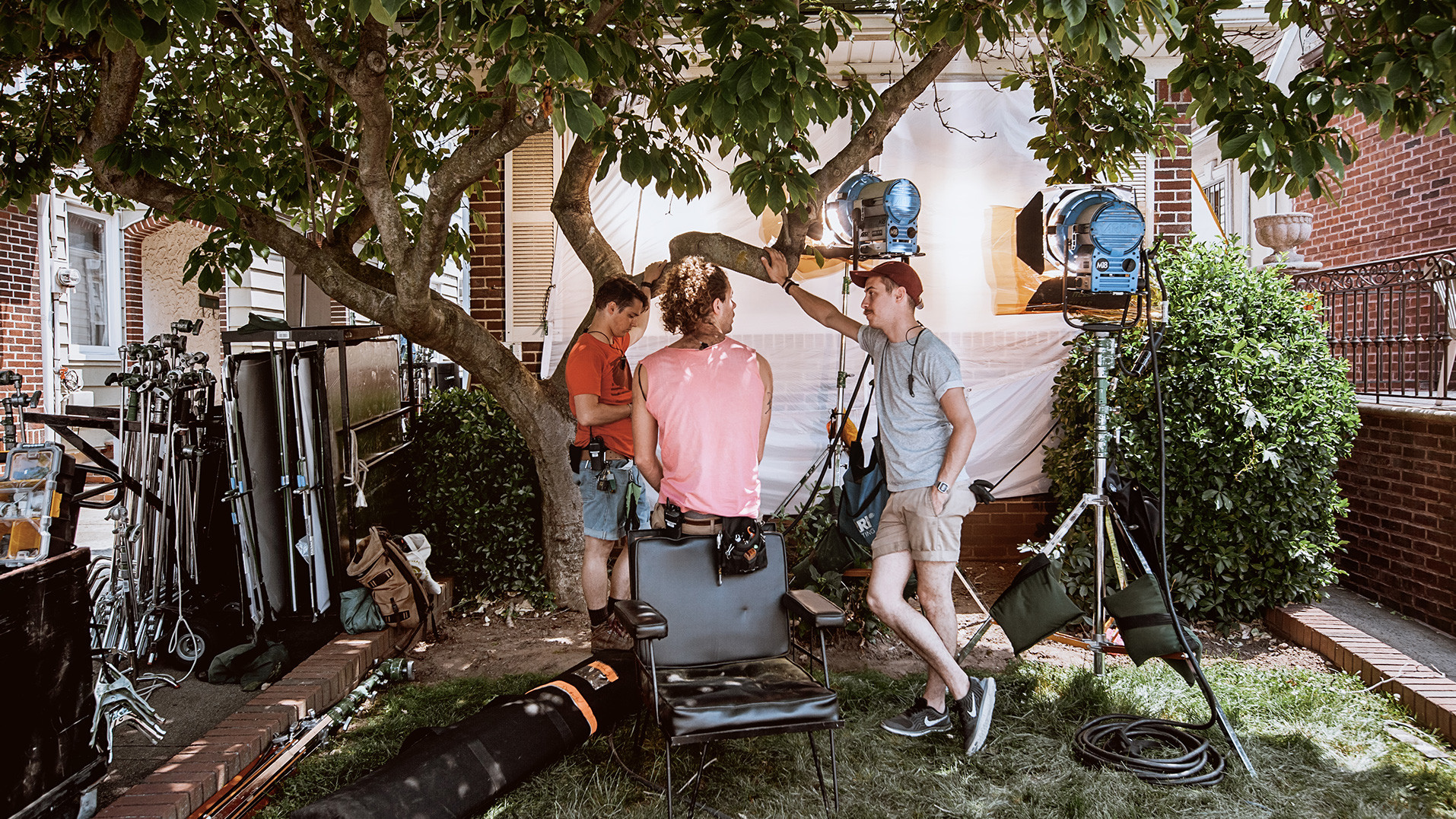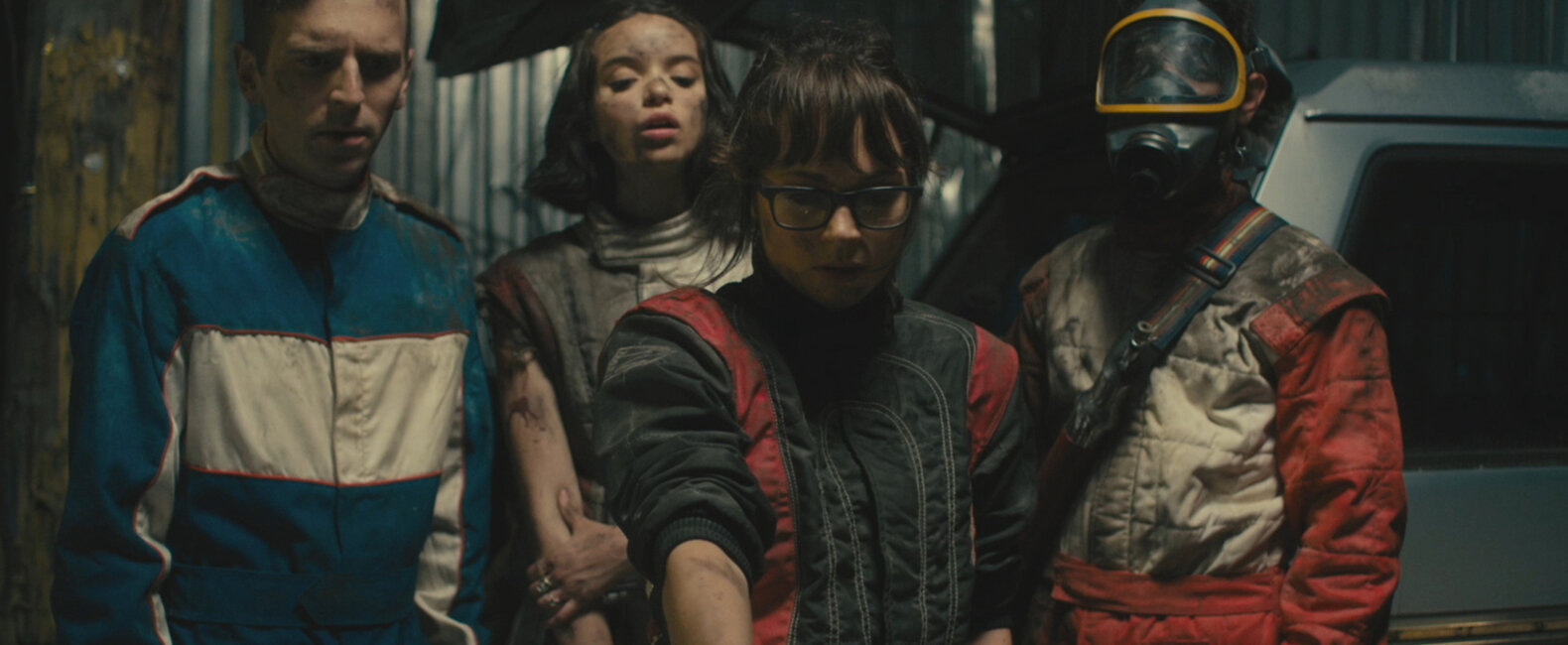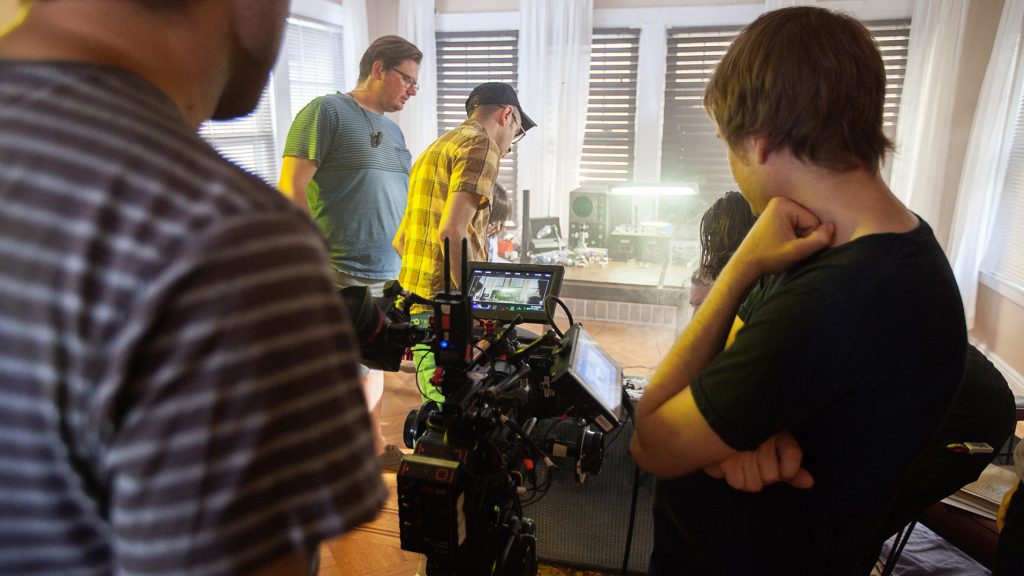Dylan Allen’s The Privates manages to tackle sci-fi, indie-rock, group dynamics, and merge them into one brilliantly thoughtful short film. The ideas in the ensemble comedy transcend filmmaking: waiting for your big break, struggling through creative differences, grappling with the drive to create something so great it melts faces. But despite all of those highly recognizable elements, the film has a wit and through-line that is totally original. That’s probably due in large part to the work Allen put into making every single role in his cast of characters strong enough to stand out from the background noise.
“All of these ideas are things that rattle around in a musician’s head, a songwriter’s head, an artist’s head, a filmmaker’s head. Seeing how they all play out together once you personify them is fun and fascinating.”
It also works because it’s one of the best-written short films we’ve seen. We talked to Dylan about the safe-haven production company that allows him to experiment, the throwback narratives that inspire his work, and the potentially hazardous talent that makes The Privates such an unforgettable watch.
Musicbed: What motivated you to start your production company?
My partner, Eddy Vallante, and I both work in a commercial capacity with different companies around New York, but we were always teaming up to get away from that whenever we could. Amalgamated Picture Co. gave us a banner to use over the stuff that really excited us.
What kinds of stories appeal to you?
The trend we kept noticing in our stories was this exploration of high-concept genre films that pack a humorous punch. But we’re really interested in telling stories that are meaningful to us and accessible to a lot of people. We always try to think about the audience experience: Is everything clear? Is everything fun? Is everything functioning the way it should be from the perspective of someone with no context for the story? We miss that era when you could watch a movie that has mass appeal yet has its own voice and unique perspective. I’m great.
Epilogue, the film before The Privates, is sort of a postmodern action/adventure examination. We meet an Indiana Jones-esque adventure hero at the end of an epic quest, and we explore what happens next between him and his love interest. So, we’ve always been fascinated by the idea of taking those tropes — those things that got our fists pumping when we were kids in the ’80s — and looking at them in a different light. It took us so long to establish what that would look like for The Privates.
How long?
It was a feature script I started playing around with back in 2008, so we’ve had that story about 10 years. Things have changed so much in our industry that it’s hard to watch a movie trailer and say, “Oh, that’s a new thing I haven’t seen. That looks fun. It looks funny. It looks exciting. Maybe it’s scary.” That’s what we’re swinging for: telling new stories in a way that’s true to our own perspective and that all kinds of people can enjoy. Thankfully, that’s the response we’ve been getting from The Privates.
What inspired this story?
The Privates is inspired by The Privates! [laughs] They’re a real band from Nashville, and the music in the film is their music. But that’s where the comparisons end within the film. I saw them at a basement show back in 2005. A drummer friend I was touring with at the time introduced me to them during a stopover in Nashville. It was like a scene out of a movie: packed basement, two or three o’clock in the morning, crazy. They became my favorite band that night.
What made you want to fictionalize their story?
Narrative films about rock bands have sort of become an endangered species. And the band’s music was so evocative and mysterious. I couldn’t tell you what a single one of The Privates’ songs is about, but the fact that the lyrics were so esoteric conjured a lot of images for me. Before I knew it, I was thinking, This band would make a great movie. And then I started thinking about how to pair that with a higher-concept genre element, and what that might look like.
How’d the band feel about you making a high-concept narrative out of their namesake?
When I told the band I was making the film, they were concerned it was going to be a very straightforward piece about trying to get famous. I told them, “No, this is going to be time travel or clones; it’s going to be crazy.” I didn’t know exactly where the idea would go at first. But sci-fi and the function it has played in film and other mediums immediately revealed itself as the option to run with.
What function is that?
Analyzing issues that some facet of society is grappling with — but in a very heightened way that takes some of the pressure off confronting the issue. For us, it was seeing a band struggle with an energy that blows up amps — which is basically an impossible hurdle — and that’s exactly what it’s like to be in an unknown, struggling band with no money. You want to succeed, obviously, but it seems like everything is telling you it’s never going to happen. Again, this idea is very much rooted in the world of a feature script, so the longer version of the story will help us explore that to the extent we need to.

Did you benefit from your familiarity with the feature-length concept when you tried to distill it into this short?
In certain ways, absolutely. The characters feel a little more realized because they’ve spent so long together in the world of the feature script. We took a lot of what was learned throughout 120 pages in the feature script, and we used that to quickly boil down who they all are in relation to one another.
So, you’re also a musician? What did you play on tour?
I played guitar and bass in a few different ensembles. I’ve toured with maybe six or so different acts. I definitely got a crash course in life on the road and what artists have to deal with when there’s not a label providing support. I guess I had a lot to say about that when I started writing The Privates. [laughs]
What was more important while you were casting: actors who could sell the musicianship, or actors who were right for each character?
The musical component was a huge factor for me. It’s very obvious when you see an actor who has no clue what to do with an instrument. All of a sudden they’re playing a guitar in a scene, and clearly they’ve never held a guitar before. It’s difficult to articulate… there’s just a noticeable ease when an actor is well versed with the intricacies of a tool or a prop or an instrument. If you don’t have that, it sticks out and really pulls the audience out of the film.
Like when you ask someone to smoke a cigarette for the first time?
Exactly, they don’t know how to hold it. That was obviously a big part because the musical performance at the end of that first scene is our first opportunity to either get the audience excited about these people and further invest in them, or give them an excuse to totally check out.
Acting ability was equally important to us. After all, 95% of the movie is going to be dependent on the chemistry and dialogue between the four roles. We got really, really lucky in that respect. Rachel Trachtenburg, in particular, was the hardest to find. She plays the drummer in The Privates. I first became aware of her back in 2005 when she played in a band called The Trachtenburg Family Slideshow Players. They were the coolest goddamned band. Then our casting director brought up Rachel after seeing several drummers who just weren’t right and, lo and behold, she’s an adult now and a great actress. We actually rewrote the part a little bit after we saw her.

Are the characters representative of larger ideas?
They definitely started out as ideas for characters. But as the roles took form, that all changed. We found we needed to create four competing priorities in order to get the right kind of fun conflict in return. I love people talking over other people; I like people not listening to other people; all of that stuff is really interesting to me. And when you think about it in a more conceptual way – if you think about the warring thoughts of any creative person – you can’t have just one of those elements. You need all four. They all serve a purpose in their own way.
Max, the lead singer, is very frustrated. He’s restless; he wants to get on with it. Whereas Ben, who is sort of the pragmatist and maybe a bit more concerned about getting things just right, is the foil to Max. Similarly, Kep is obsessed with the process, and she wants to understand more about how things works, what makes them work, what’s effective. And then you have Roka who’s there for the fun of it and to remind them that they do what they do because of the love they have for it. All of these ideas are things that rattle around in a musician’s head, a songwriter’s head, an artist’s head, a filmmaker’s head. Seeing how they all play out together once you personify them is fun and fascinating.
Did that help feed the conflict between them?
Oh, yeah. Max and Ben are such a perfect example of two halves of the same whole. Finding a way to make them both irresistible on the screen and integral to the success of the story — and do it in such a short period of time — was a major challenge of the film. But they generate a great natural conflict between them because they’re motivated by such different things. I’m looking forward to seeing these four lunatics grow together and change in the feature.


















































































